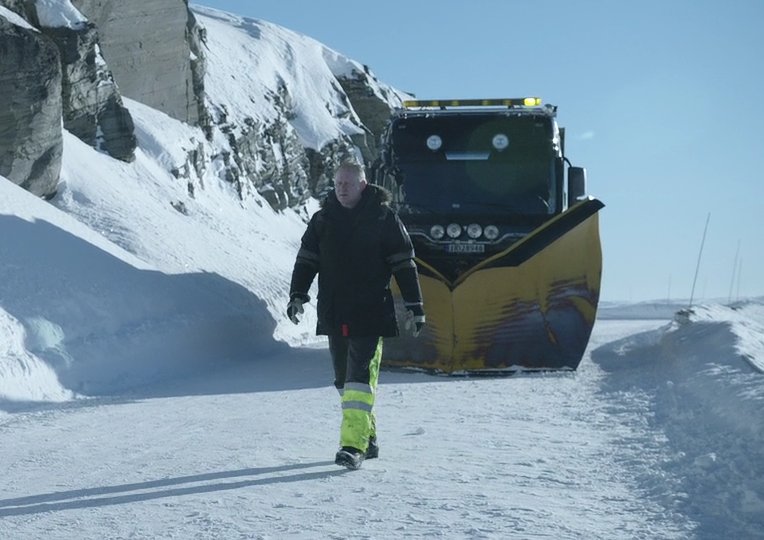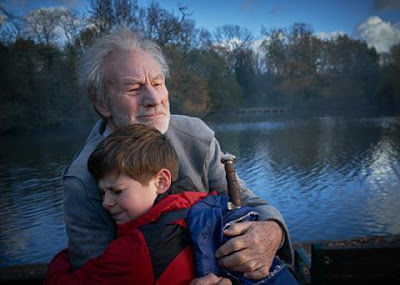Bruno Ganz, who
has died aged 77, was an acclaimed, versatile actor who quietly won cinephile
hearts over his near-sixty year career. He will be best recalled from two
contrasting roles undertaken after he had reached lived-in middle age:
displaying a touching stillness as Damiel, the melancholy angel descending from
Berlin’s rooftops to live among mortals in Wim Wenders’ Wings of Desire (1987), then a manic fervour as the terminally
entrenched Hitler of Downfall (2004).
Ganz’s watchmaker-like eye for character detail was much in evidence there, yet
it was this Hitler’s rants – extracted and resubtitled by wags – which proliferated
online, resulting in a peculiar quirk of the early Internet age: a sexagenarian
who’d spent decades honing his craft found himself reinvented overnight as a
YouTube sensation.
These roles placed
Ganz among cinema’s most eloquent German speakers, yet elsewhere his career was
defined by a certain Swissness. Roaming Europe from a base in his birthplace
Zurich, he maintained an aura of thoughtful detachment that enabled him to convince
as celestial observers, professors and sympathetic patsies alike. The plot of The American Friend (1977) – an earlier Wenders
collaboration, drawn from Patricia Highsmith’s Ripley’s Game – was reliant on the balding, 5’6” actor being so
nondescript he might get away with murder. Faced with choosing between the
eternal and the earthly, Ganz – like Damiel – generally plumped for the latter:
“I like to walk. I like to read. I like to watch people. I’m very curious.”
He was born on
March 22, 1941 to an Italian mother and a Swiss mechanic father, and apparently
baffled both with his decision to quit school to pursue acting. Spells as a
bookseller and paramedic followed, but he soon found employment within the movie
business, making his debut as a hotel page in comedy The Man in the Black Derby (1960). After compiling a decade’s worth
of minor stage and screen credits, he relocated to Berlin, forming the
left-wing theatre company Schaubühne with writer-director Peter Stein
in 1970. An early success came with the group’s epic 1971 staging of Peer Gynt; Ganz would be named Actor of
the Year by the magazine Theater Heute
in 1973.
It was Stein who boosted
Ganz’s screen profile, directing him in an adaptation of Gorky’s Summer People (1976) that became a local
hit. His international breakthrough came later that year in Eric Rohmer’s
painterly Kleist adaptation The Marquise
of O, quickly followed by The
American Friend, where the actor’s meticulous, low-key approach made a
fascinating contrast with Dennis Hopper’s strutting Ripley. He became a
pancontinental go-to, spotted as the cloning expert briefing Nazi hunter
Laurence Olivier in The Boys from Brazil (1978),
then as Harker in Werner Herzog’s Nosferatu
rethink (1979), seducing the young Isabelle Huppert in Lady of the Camelias (1981), and anchoring Alain Tanner’s
Lisbon-set curio In the White City
(1983).
He remained much
in demand among German creatives, however, impressing as the Lebanon-bound journalist
in Volker Schlöndorff’s Circle of Deceit
(1981), before receiving stellar reviews for his Hamlet in Schaubühne’s six-hour 1982 production. Similar notices ensued for the era-spanning
TV series Fathers and Sons: A German
Tragedy (1986) before he donned Wings
of Desire’s shabby mac and feathers; his down-at-heel cherub became such a
touchstone that fellow passengers told Ganz they felt safer with him aboard
their flight. He would reprise the role twice: first via a cameo in Icelandic
drama Children of Nature (1991), then
in Wenders’ ill-fated, all-star Wings
sequel Faraway, So Close! (1993).
Ganz missed out on
the lead in Schindler’s List (1993),
but won praise for his Antoine de Saint-Exupéry in the BBC’s Saint-Ex (1996) and was moving even when
dubbed into Greek as the writer protagonist of Theo Angelopoulos’s Palme
d’Or-winning Eternity and a Day
(1998). He juggled commercial ventures (late-life Italian romance Bread and Tulips, 2000) with passion
projects, like the 14-hour Faust filmed
for German TV in 2001 and documented in Behind
Me: Bruno Ganz (2002). American filmmakers began to take notice. Before
playing Hitler, Ganz showed up in arch-cinephile Jonathan Demme’s remake of The Manchurian Candidate (2004); he
followed Downfall with Francis Ford
Coppola’s Romanian-shot folly Youth
Without Youth (2007).
The work grew only
more varied and surprising with age. Running the gamut of European history, he
was a Holocaust survivor in The Reader
(2008), then lent precision to making (cyanide-laced) tea as an ex-Stasi agent
in Liam Neeson runaround Unknown (2011).
He played a Dutch diamond dealer in Ridley Scott’s The Counsellor (2013), a Serbian heavy in Norway’s blackly comic In Order of Disappearance (2014), then Grandpapa
in Heidi (2015), the most successful
Swiss film of all time. He was riotous as a holistic cuckoo in Sally Potter’s
Hampstead-set comedy The Party (2017),
a Virgil variant in Lars von Trier’s The
House that Jack Built (2018) and a cigar-puffing Freud in The Tobacconist (2018).
In 1996, he took
delivery of the Iffland-Ring, a diamond-studded trinket passed to “the most
significant and worthy actor in German-speaking theatre”, and which he held
until his death. He received the European Film Academy’s Lifetime Achievement
award and the German Order of Merit while serving as President of the German
Film Academy between 2010 and 2015. In 2018, he withdrew from the Salzburg
production of The Magic Flute upon a
diagnosis of colon cancer; his final screen appearance will be in Terrence
Malick’s WW2 drama Radegund.
Reflecting upon Wings of Desire in
1994, he confessed it was an amazing experience: “In some way I became an
angel, and who except me has experienced that in his lifetime?”
He is survived by
a spouse, Sabine, from whom he was separated, and by their son Daniel; his long-term
partner was the photographer Ruth Walz.
Bruno Ganz, born March 22, 1941,
died February 16, 2019.











